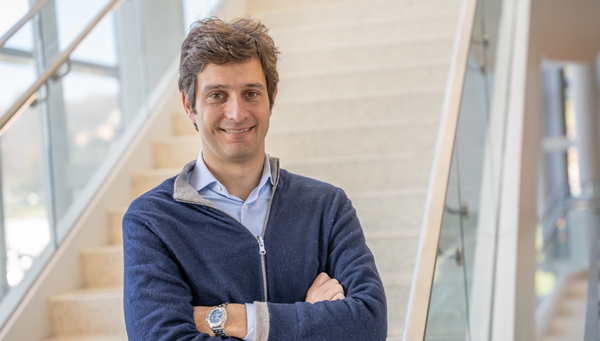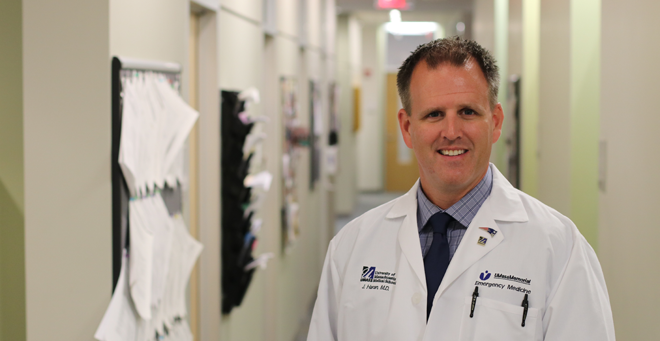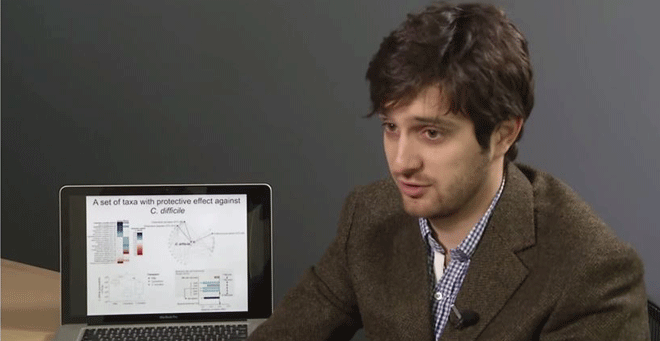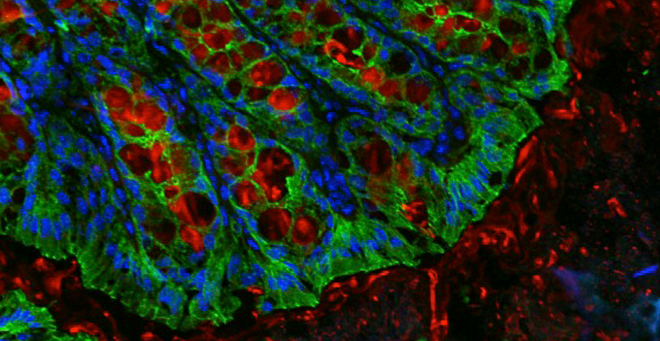
Beth McCormick, PhD, and Vanni Bucci, PhD, have been selected by the National Institute of Allergy and Infectious Diseases (NIAID) Radiation and Nuclear Countermeasures Program to lead a $3 million effort to explore engineering the gut microbiome to counteract the effects of radiation exposure and total body irradiation. The project was one of four selected for funding by NIAID.
“The gut microbiome represents an internal tool kit of organisms,” said Dr. McCormick, the Worcester Foundation for Biomedical Research Chair II, vice chair and professor of microbiology & physiological systems and director of the Program in Microbiome Dynamics. “Since these bacteria play an important role in overall health, we are going to identify bacteria that help to promote intestinal integrity. By manipulating the gut environment through the administration of next-generation probiotics and the use of specific diet, nutrients and metabolites to enrich for the abundance of these organisms, we hope to provide a defense against radiation exposure.”
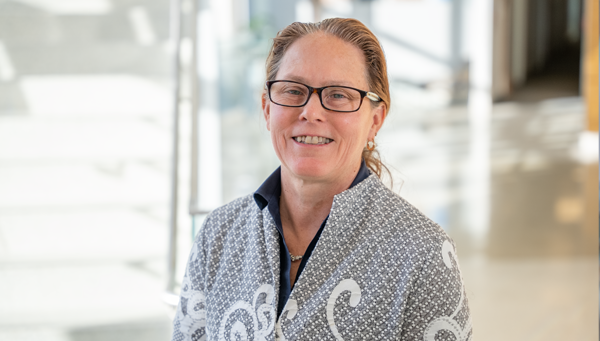
The project is part of a request from the NIAID Radiation and Nuclear Countermeasures Program to explore how the presence of resident microbiomes in the body might affect the severity of radiation injuries that would be sustained during a radiation or nuclear incident. The goal is to utilize the microbiome itself to develop medical countermeasures that target the microbiome to treat radiation injury.
When the body is exposed to high levels of radiation, among the first cells damaged or destroyed are the epithelial cells in the intestine, because these are some of the fastest replicating. As the epithelial cells die, the barriers between the intestine and the rest of the body weaken and become “leaky,” according to McCormick. Bacteria that would normally reside outside the intestines begin to seep into the digestive tract where they proliferate, infect the blood and cause sepsis. Most victims of radiation exposure succumb to this infection.
Traditionally protection from radiation is achieved through a physical barrier that protects the body, such as a lead apron that technicians might wear while administering an X-ray. “What we want to do is to see if we can identify and promote organisms in the gut microbiome that can help maintain and buttress the internal barrier between the digestive tract and the rest of the body,” said McCormick. “If we can increase the resiliency of the epithelial cells and keep them from dying, then we can potentially prevent radiation-caused bacterial translocation and infection.”
Recent advances in genome sequencing and increases in computing power that make possible the analysis of the enormous and complex data sets produced by these experiments have greatly increased scientists' knowledge of the human microbiome. “Because of our ability to more deeply understand the various organisms in the microbiome, how they grow and what they do, it is possible that we could develop a bioproduct that we know could selectively promote certain bacteria that maintain health and intestinal integrity,” said Dr. Bucci, associate professor of microbiology & physiological systems.
